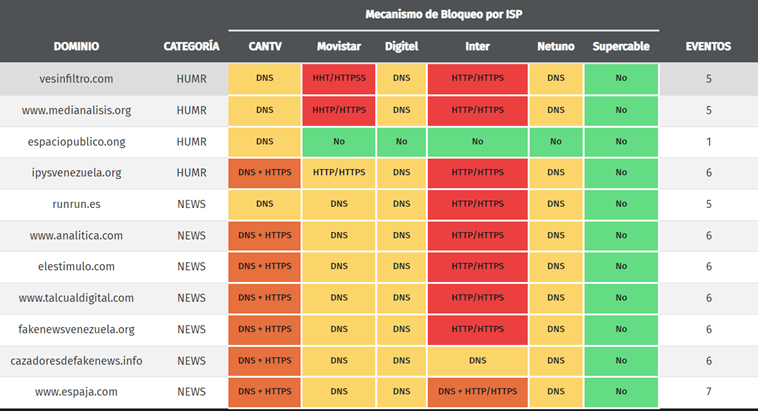Friend
Professional
- Messages
- 2,677
- Reaction score
- 1,095
- Points
- 113
The government is stepping up digital crackdowns during the election period.
Venezuelan President Nicolas Maduro continues to tighten his rule, using technology to stifle dissent and restrict access to information. More than 100 civil society organizations and human rights defenders signed an open letter informing about the blocking of 62 mass media outlets.
The situation with digital suppression and human rights violations in Venezuela significantly worsened during and after the July 28 presidential election, which many believe was rigged.
VEsinFiltro, an organization that monitors Internet censorship in the country, found 12 new cases of blocking the websites of media and human rights organizations, as well as VPNs. According to Access Now, in addition to 62 blocked media outlets, the country's largest Internet service providers were also disabled, affecting 86 domains. The day before the election, wikipedia sites[.]org and es. wikipedia[.]org were also blocked.

Cases of Internet blocking during the ongoing campaign
VEsinFiltro also confirmed restrictions on access to the Electoral Administration's website, which contains official data on the presidential election. The site did not open either inside or outside Venezuela.
According to some reports, since 2016, the Chinese company ZTE has been supplying Venezuela with advanced surveillance technologies. Maduro also confirmed the presence of phone hacking technologies developed by the Israeli firm Cellebrite.
The Venezuelan authorities use the state messenger VenApp to collect reports on opposition figures. In addition, video surveillance and drones are actively used to spy on citizens. The surveillance program is accompanied by the State operation Knock-Knock, which promotes the unmasking and arbitrary detention of activists, journalists, and ordinary citizens.
According to Reuters, three human rights groups reported that security services harassed and arrested protesters, including minors, without allowing them to consult lawyers. In total, more than 2,000 people were arrested, including 20 deaths, and at least 25 people were reported missing, according to Access Now.
Source
Venezuelan President Nicolas Maduro continues to tighten his rule, using technology to stifle dissent and restrict access to information. More than 100 civil society organizations and human rights defenders signed an open letter informing about the blocking of 62 mass media outlets.
The situation with digital suppression and human rights violations in Venezuela significantly worsened during and after the July 28 presidential election, which many believe was rigged.
VEsinFiltro, an organization that monitors Internet censorship in the country, found 12 new cases of blocking the websites of media and human rights organizations, as well as VPNs. According to Access Now, in addition to 62 blocked media outlets, the country's largest Internet service providers were also disabled, affecting 86 domains. The day before the election, wikipedia sites[.]org and es. wikipedia[.]org were also blocked.

Cases of Internet blocking during the ongoing campaign
VEsinFiltro also confirmed restrictions on access to the Electoral Administration's website, which contains official data on the presidential election. The site did not open either inside or outside Venezuela.
According to some reports, since 2016, the Chinese company ZTE has been supplying Venezuela with advanced surveillance technologies. Maduro also confirmed the presence of phone hacking technologies developed by the Israeli firm Cellebrite.
The Venezuelan authorities use the state messenger VenApp to collect reports on opposition figures. In addition, video surveillance and drones are actively used to spy on citizens. The surveillance program is accompanied by the State operation Knock-Knock, which promotes the unmasking and arbitrary detention of activists, journalists, and ordinary citizens.
According to Reuters, three human rights groups reported that security services harassed and arrested protesters, including minors, without allowing them to consult lawyers. In total, more than 2,000 people were arrested, including 20 deaths, and at least 25 people were reported missing, according to Access Now.
Source

